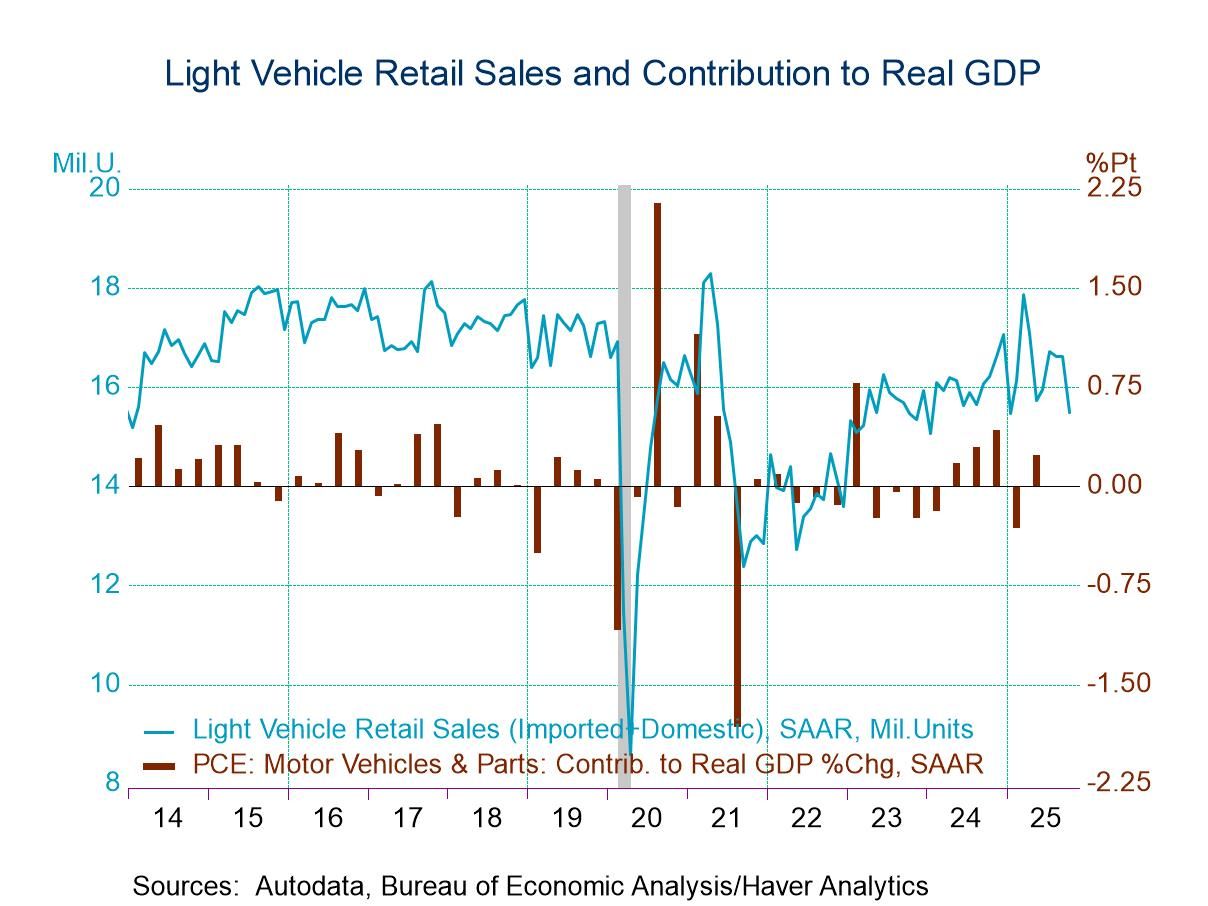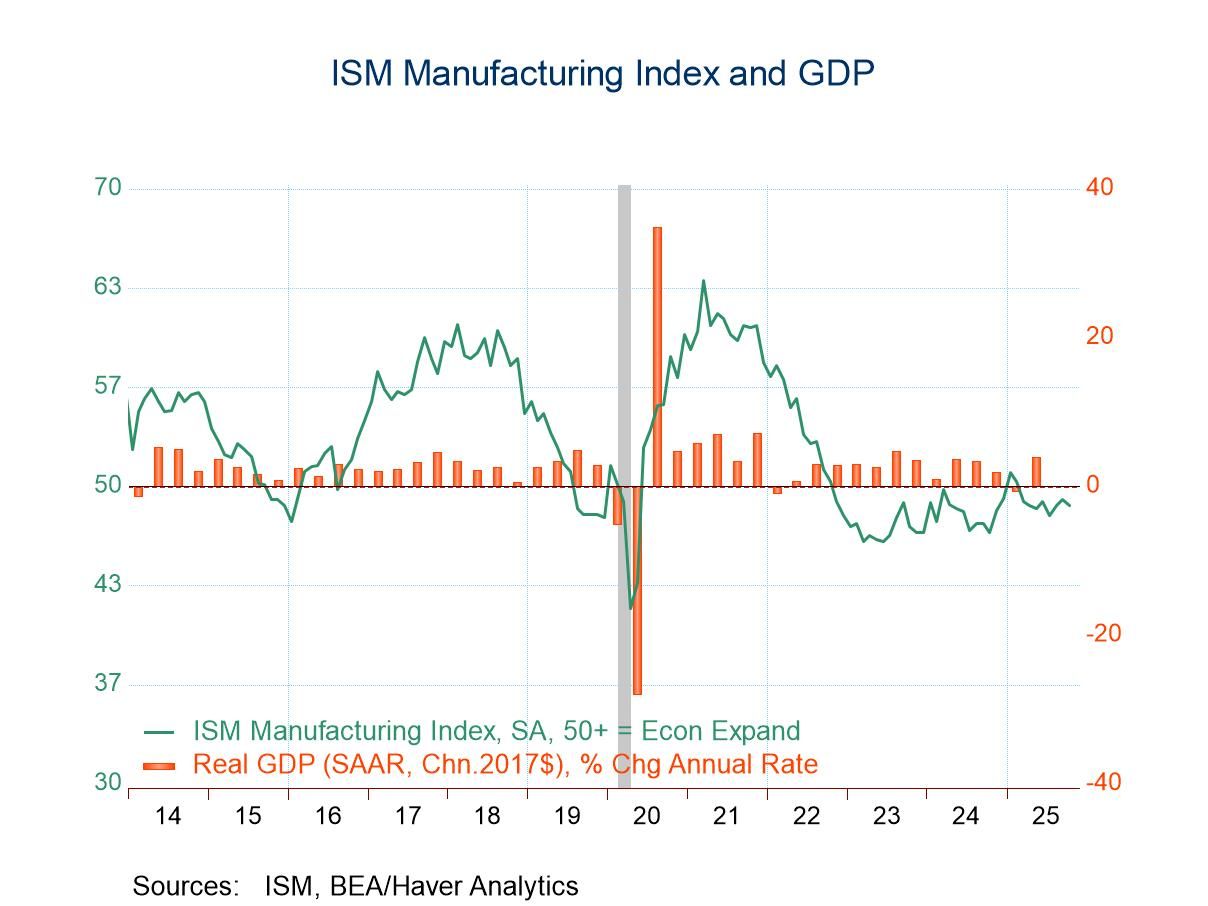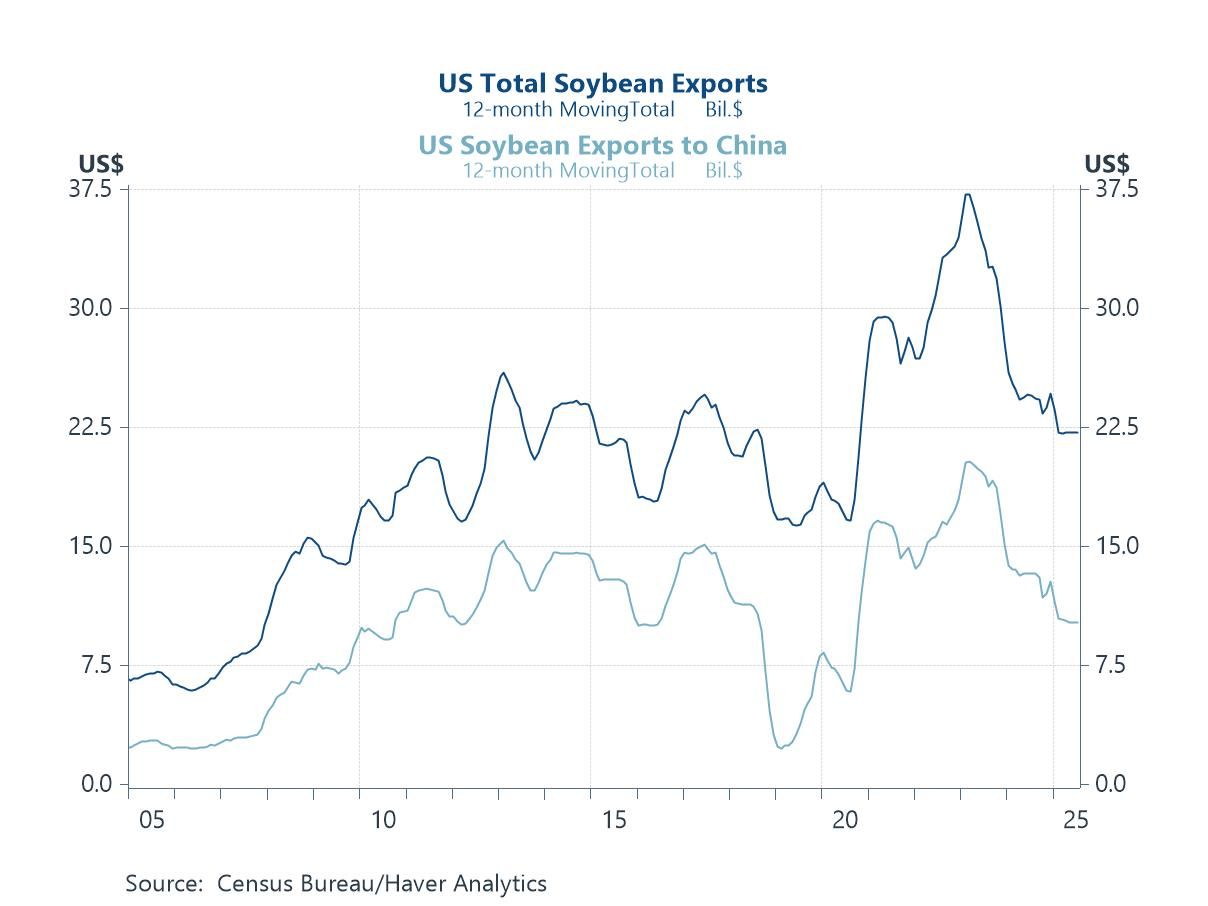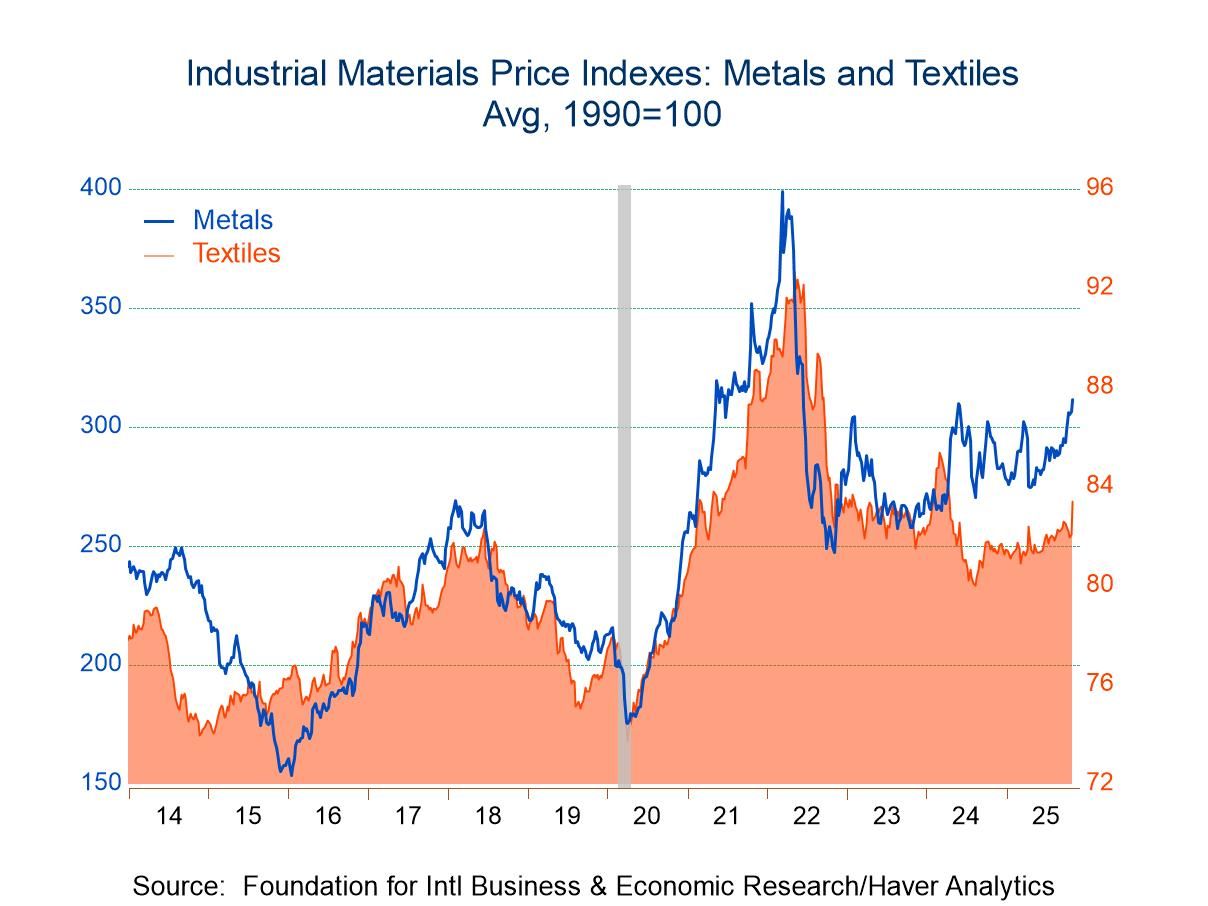 Global| Nov 14 2008
Global| Nov 14 2008Michigan Reading of Consumer Sentiment Remained Glum
by:Tom Moeller
|in:Economy in Brief
Summary
The University of Michigan's reading of consumer sentiment for the middle of this month remained near the low posted during October. The index ticked up to 57.9 from 57.6. The latest level was near the lowest for the series since this [...]
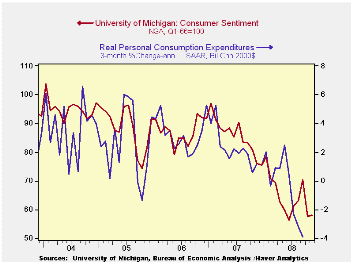
The University of Michigan's reading of consumer sentiment for the middle of this month remained near the low posted during October. The index ticked up to 57.9 from 57.6. The latest level was near the lowest for the series since this past June which in turn was the lowest since early-1980. The latest figure was higher than Consensus expectations for a reading of 56.0.
During the last ten years there has been a 55% correlation between the level of sentiment and the three-month change in real consumer spending.
The mid-month current conditions index improved modestly to 61.4 but it remained down by one-third from last year. The view of current personal finances ticked up m/m but remained down by more than one-third from last year. The index of buying conditions for large household goods recouped about one-third of the October decline but remained off 30.9% y/y and near the lowest since 1980.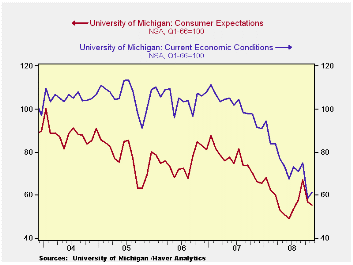
The expectations component of consumer sentiment was down. A 2.3% m/m decline this month came on top of the 15.2% October drop. The figures were, however, slightly above the lows reached this past Spring. Expectations for business conditions during the next years fell slightly as did expectations for conditions during the next year, but they both remained up from their recent lows. The expected change in personal finances ticked higher by 0.9% m/m and the reading was up 10% from the Spring low.
The opinion of government policy, which apparently influences economic expectations, also ticked up from October (-35.4% y/y). Only a slightly improved seven percent of respondents thought that a good job was being done by government while 54% thought a poor job was being done. That was near the highest percentage on record.
Recent economic weakness and lower oil prices caused inflation expectations to fall. The mean expected rate of inflation during the next year plummeted to 2.9% from 4.3% last month. It was as high as 7.0% in May. The expected inflation rate during the next five years ticked up to 3.3%, near the lowest level since 2003.
The University of Michigan survey is not seasonally adjusted.The reading is based on telephone interviews with about 500 households at month-end; the mid-month results are based on about 300 interviews. The summary indexes are in Haver's USECON database, with details in the proprietary UMSCA database.
| University of Michigan | Mid-November | October | September | November y/y | 2007 | 2006 | 2005 |
|---|---|---|---|---|---|---|---|
| Consumer Sentiment | 57.9 | 57.6 | 70.3 | -23.9% | 85.6 | 87.3 | 88.5 |
| Current Conditions | 61.4 | 58.4 | 75.0 | -32.9 | 101.2 | 105.1 | 105.9 |
| Expectations | 55.7 | 57.0 | 67.2 | -15.9 | 75.6 | 75.9 | 77.4 |
Tom Moeller
AuthorMore in Author Profile »Prior to joining Haver Analytics in 2000, Mr. Moeller worked as the Economist at Chancellor Capital Management from 1985 to 1999. There, he developed comprehensive economic forecasts and interpreted economic data for equity and fixed income portfolio managers. Also at Chancellor, Mr. Moeller worked as an equity analyst and was responsible for researching and rating companies in the economically sensitive automobile and housing industries for investment in Chancellor’s equity portfolio. Prior to joining Chancellor, Mr. Moeller was an Economist at Citibank from 1979 to 1984. He also analyzed pricing behavior in the metals industry for the Council on Wage and Price Stability in Washington, D.C. In 1999, Mr. Moeller received the award for most accurate forecast from the Forecasters' Club of New York. From 1990 to 1992 he was President of the New York Association for Business Economists. Mr. Moeller earned an M.B.A. in Finance from Fordham University, where he graduated in 1987. He holds a Bachelor of Arts in Economics from George Washington University.



